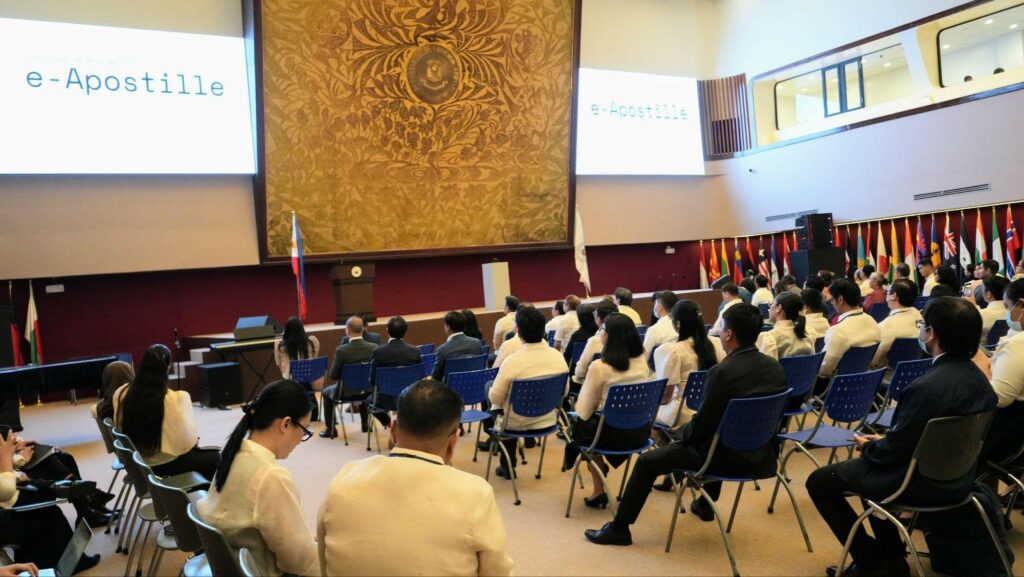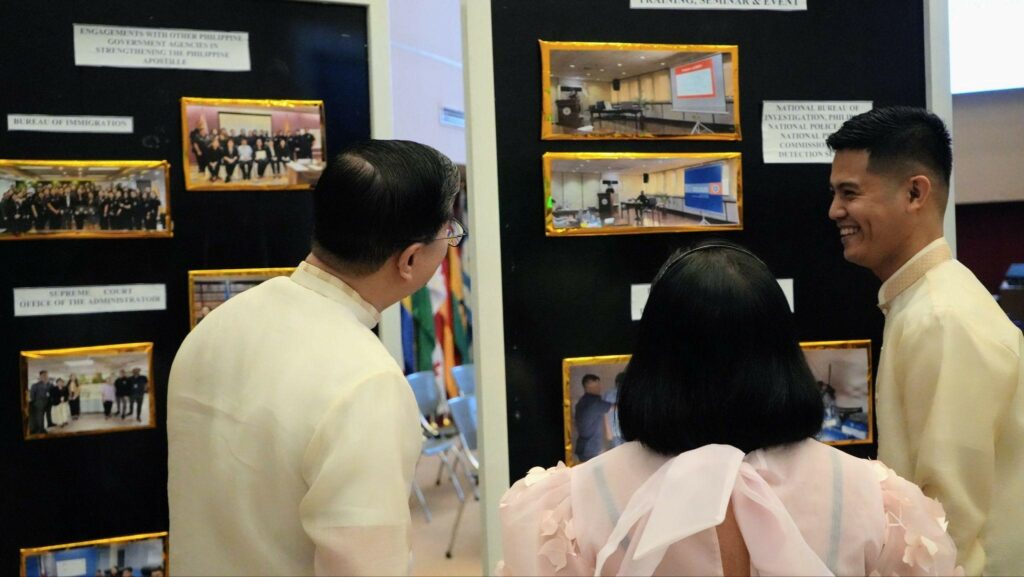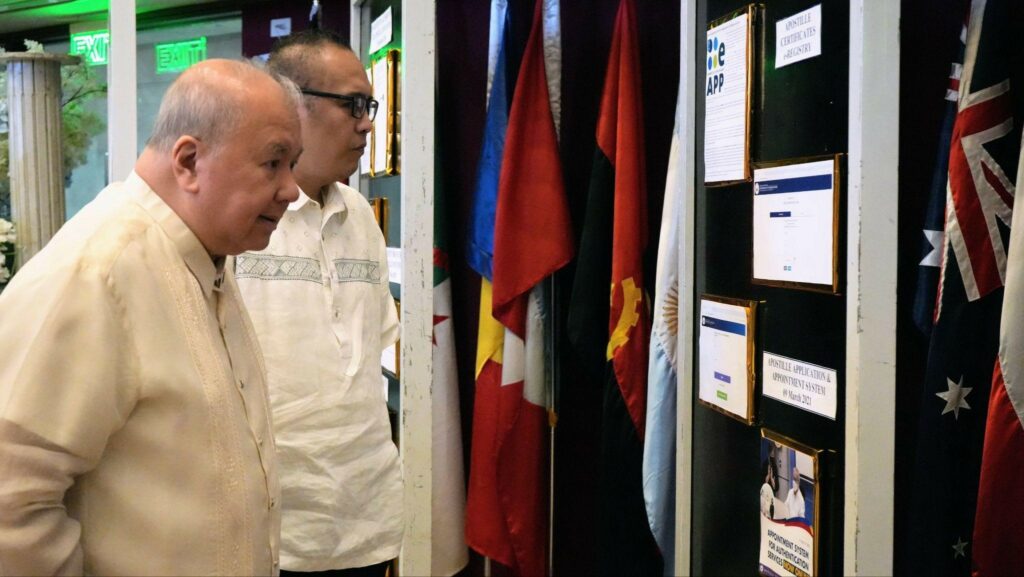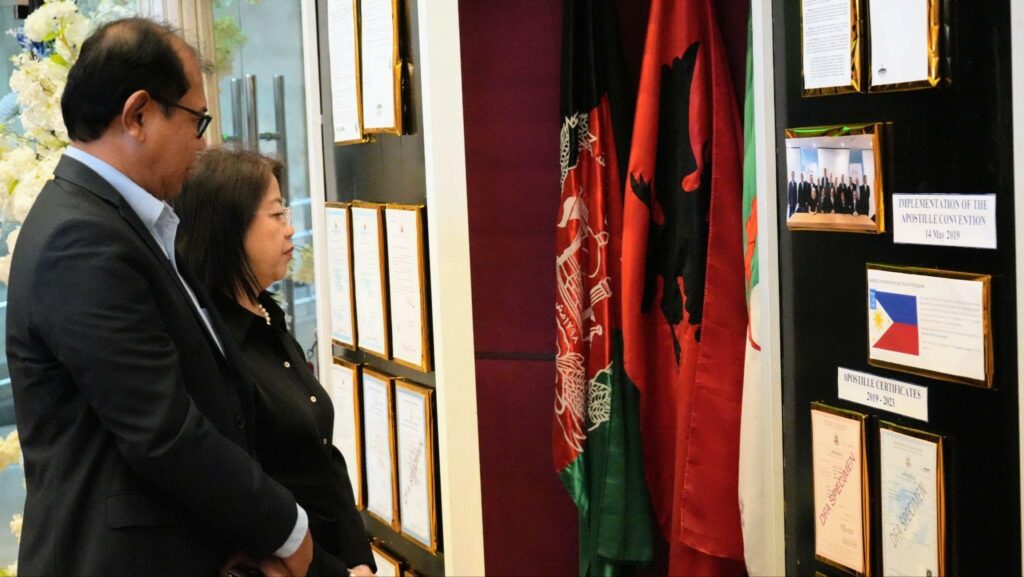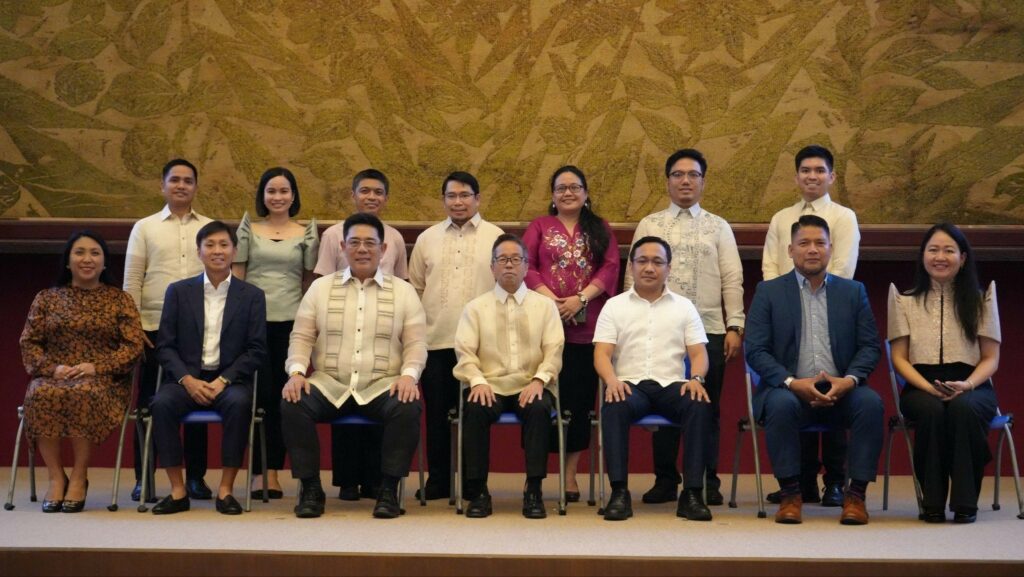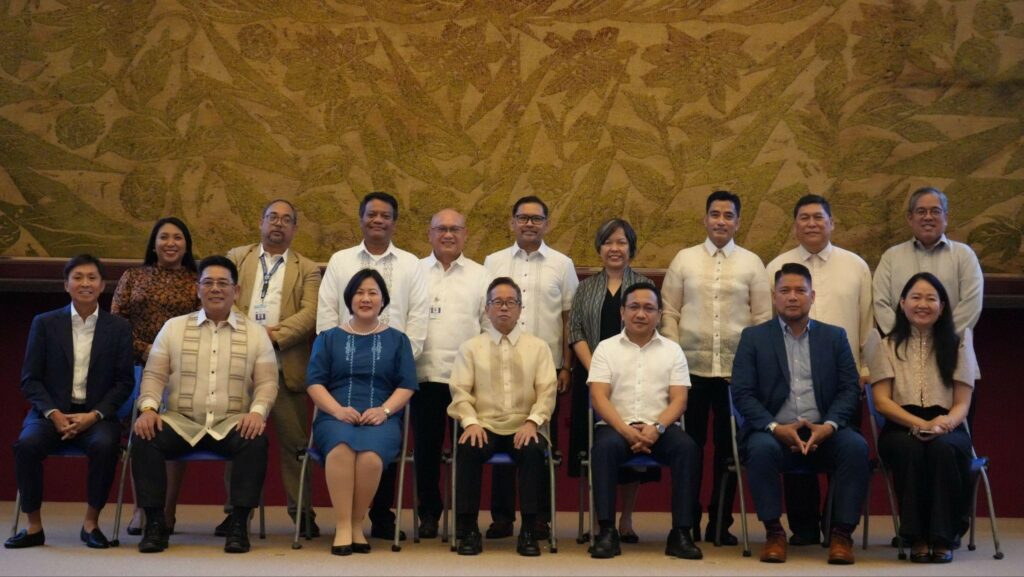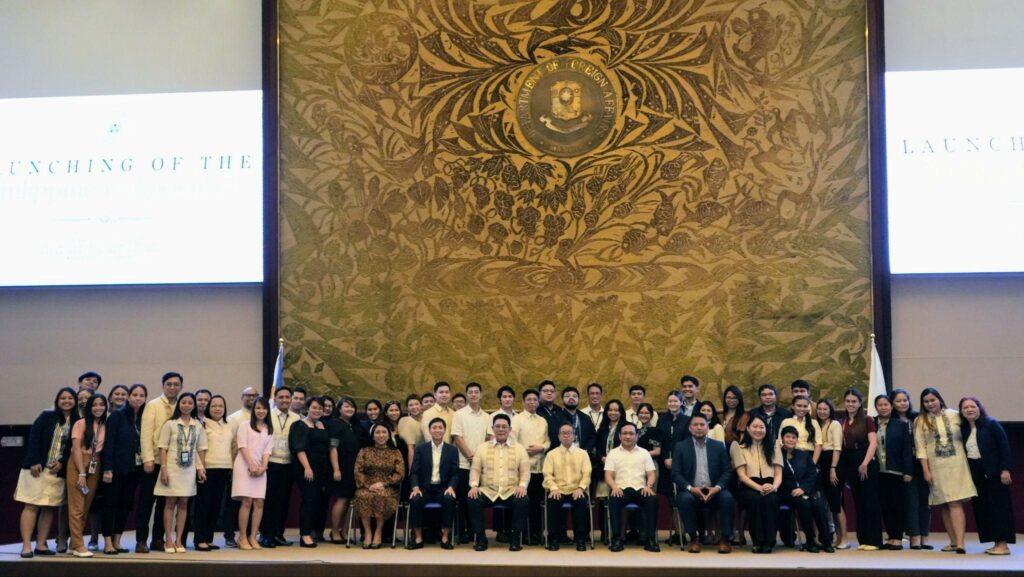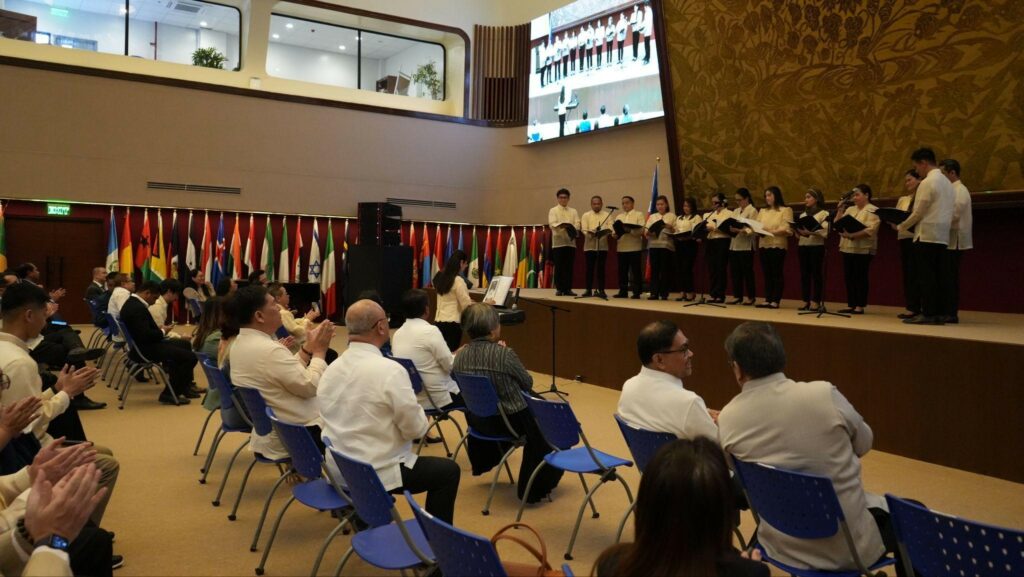19 March 2024, Pasay City- The Department of Foreign Affairs Office of Consular Affairs (DFA OCA) launched the e-Apostille service for PSA e-certificates of civil registry documents on 19 March 2024 at the Bulwagang Apolinario Mabini, DFA Main Building in Roxas Boulevard, Pasay City.
The e-Apostille system allows applicants to apply online for PSA e-certificates and e-Apostilles without the need to appear in both offices. The e-Apostille which contains the digital signature of the Department of Foreign Affairs will be sent to the applicant electronically. The system ensures government-to-government transmission of public documents ensuring the authenticity of public documents received through this electronic service.
The e-Apostille service is provided by the DFA OCA Authentication Division in collaboration with the Philippine Statistics Authority and the PSA Helpline via Pilipinas Teleserv and will be available in the DFA website at apostille.gov.ph.
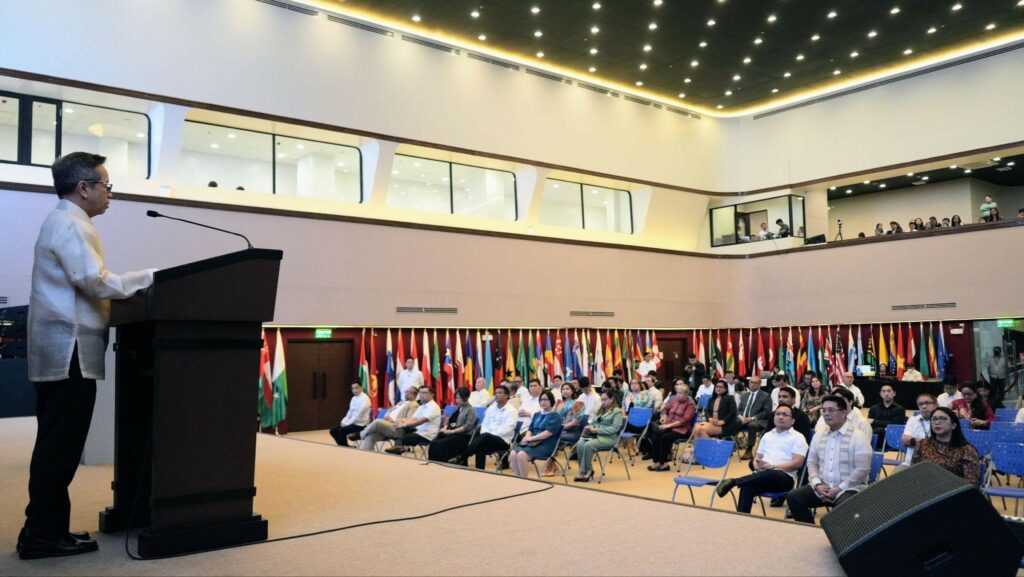
“It is noteworthy to mention that the Philippines was the first country in ASEAN to accede to the Apostille Convention. We have continued our leadership in this area by being the first in ASEAN and the third in the Asia-Pacific region to fully implement the electronic Apostille today.”, said DFA Undersecretary Antonio A. Morales in his keynote address.
Asec. Adelio Angelito S. Cruz said in his welcome remarks that, “The DFA aims to seek end-to-end digital systems for our consular services to help our public access these services wherever they may be in the world.”
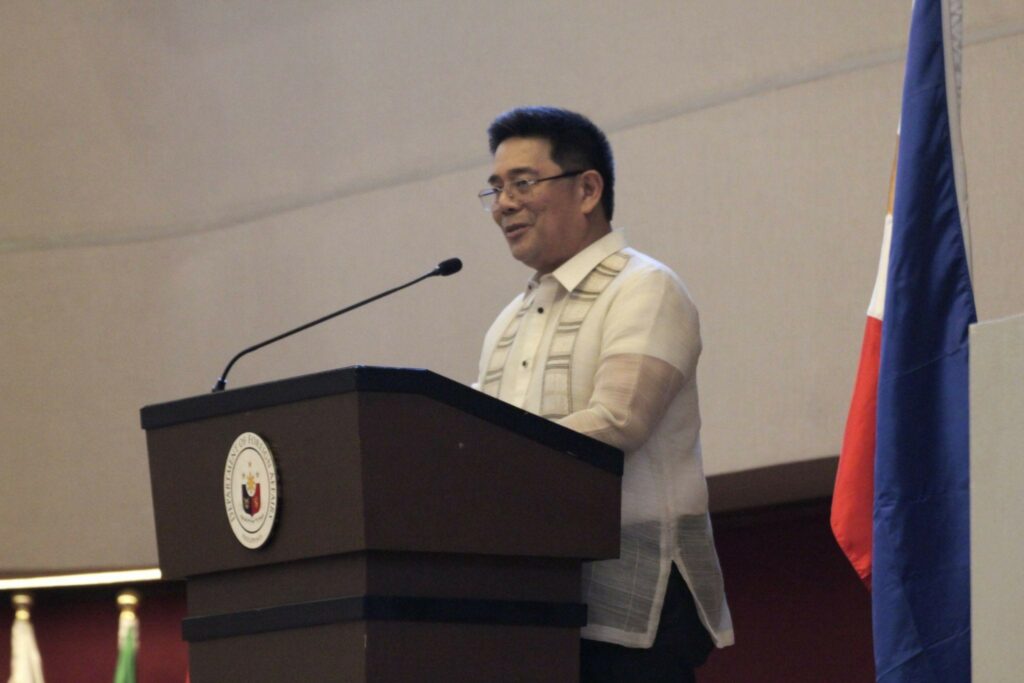
Prior to the launch, the DFA OCA conducted a study visit in Spain and an online conference with the UK Competent Authorities regarding e-Apostille implementation and developed the Philippine e-Apostille service in accordance with the technical standards set by the Hague Conference on Private International Law (HCCH).
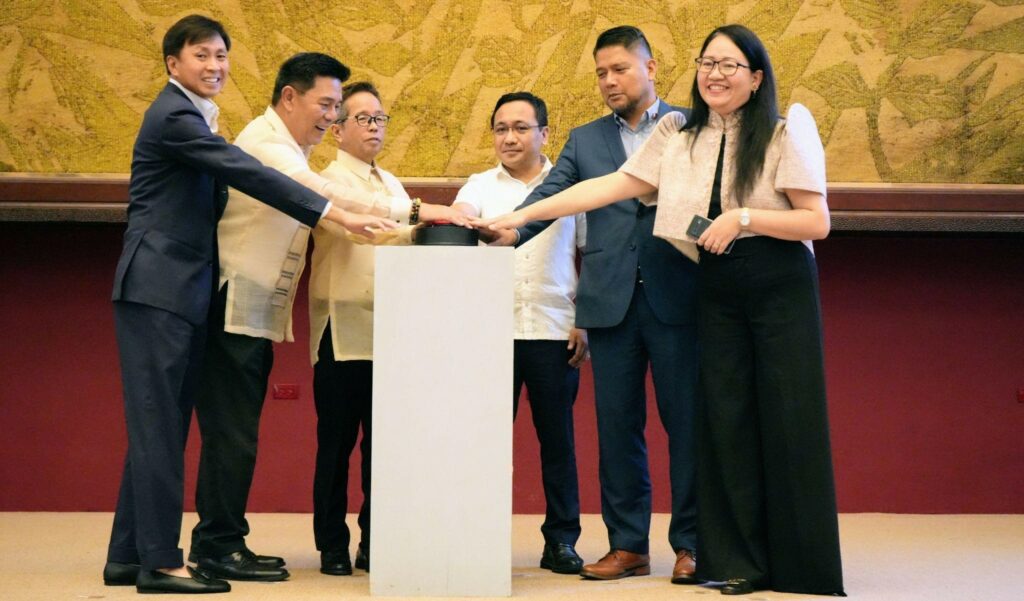
For now, the service is only available for PSA civil registry documents via PSA Helpline but will soon cover other public documents in the next phase of the implementation in coordination with other government agencies with digital processes and issuance.
E-payment options are available for PSA e-certificates via the PSA Helpline page while e-payment for the e-Apostille can be made via the Landbank Link.biz portal.
The public will continue to have the option to apply for a paper Apostille for PSA certificates and other public documents since other countries will still require paper-based Apostilles, especially those from Non-Contracting Parties to the Apostille Convention.
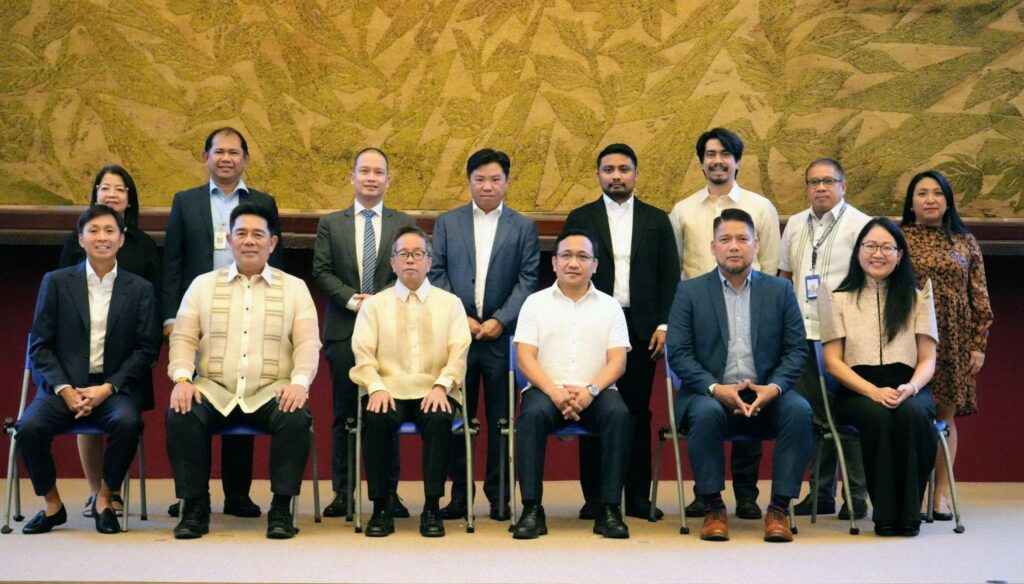
There are 126 Contracting Parties to the Apostille Convention which should accept e-Apostilles. Users are advised to check the requirements of the requesting party or end-user in the foreign country that has requested the Apostille before they apply.
End-users in foreign countries can check the Philippine e-Apostille using the online e-Apostille verification page at apostille.gov.ph or view the e-Apostille using a PDF reader. Instructions to verify an e-Apostille are indicated in the cover page sent to the end-user or applicant.
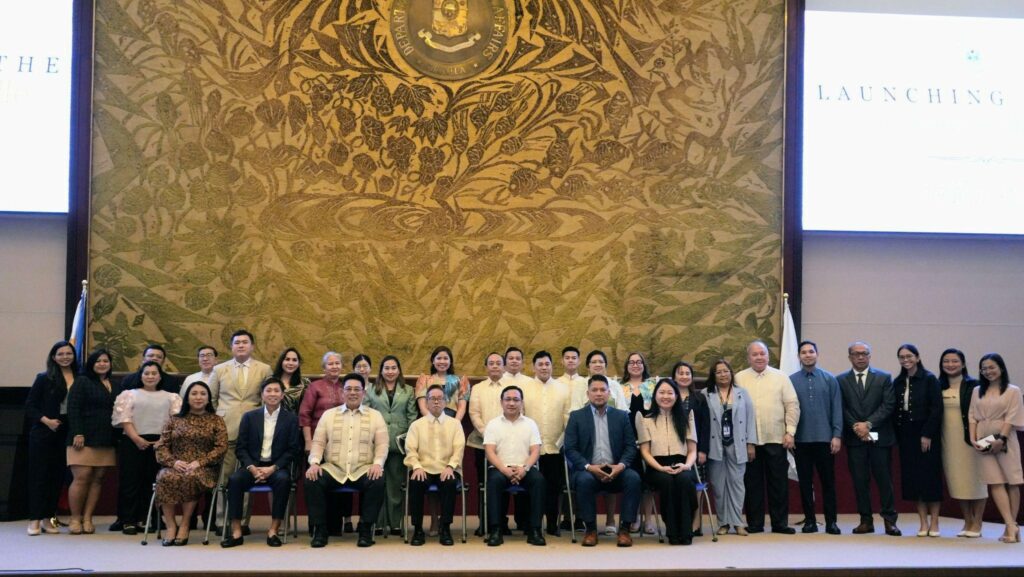
The DFA OCA presented a photo gallery of the development of the e-Apostille since the Apostille Convention took effect in the Philippines in 2019 inside the Bulwagang Apolinario Mabini. A video presentation on the implementation of the Convention and the e-Apostille was also presented during the event.
More than 150 attendees were present at the launch including representatives from 23 government agencies.
